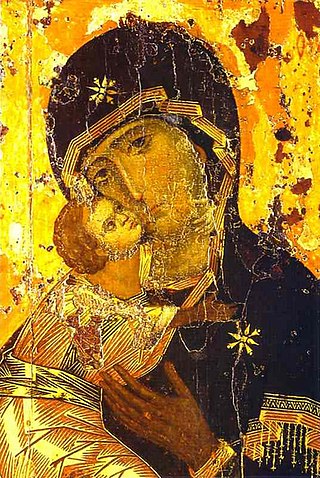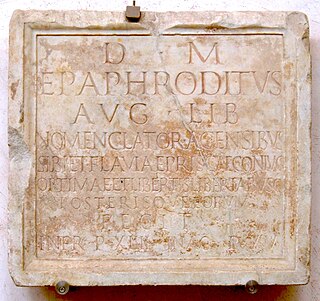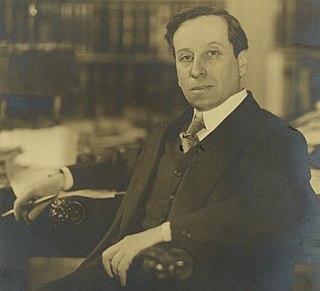Related Research Articles
The Essenes or Essenians were a mystic Jewish sect during the Second Temple period that flourished from the 2nd century BCE to the 1st century CE.

The first-century Jewish historian Flavius Josephus provides external information on some people and events found in the New Testament. The extant manuscripts of Josephus' book Antiquities of the Jews, written around AD 93–94, contain two references to Jesus of Nazareth and one reference to John the Baptist.

Flavius Josephus or Yosef ben Mattityahu was a Roman–Jewish historian and military leader. Best known for writing The Jewish War, he was born in Jerusalem—then part of the Roman province of Judea—to a father of priestly descent and a mother who claimed royal ancestry.

The 90s was a decade that ran from January 1, AD 90, to December 31, AD 99.
Bogomilism was a Christian neo-Gnostic, dualist sect founded in the First Bulgarian Empire by the priest Bogomil during the reign of Tsar Peter I in the 10th century. It most probably arose in the region of Kutmichevitsa, today part of the region of Macedonia.
The Sadducees were a sect of Jews active in Judea during the Second Temple period, from the second century BCE to the destruction of the Second Temple in 70 CE. The Sadducees are described in contemporary literary sources in contrast to the two other major sects at the time, the Pharisees and the Essenes.

James the Just, or a variation of James, brother of the Lord, was, according to the New Testament, a brother of Jesus. He was the first leader of the Jerusalem Church of the Apostolic Age. Traditionally, it is believed he was martyred either in AD 62 by being stoned to death on the order of High Priest Ananus ben Ananus, or in AD 69 by being thrown off the pinnacle of the Temple by scribes and Pharisees and then clubbed to death. James, Joses, Simon, and Judas are mentioned as the brothers of Jesus as well as two or more unnamed sisters.

The Guelphs and Ghibellines were factions supporting respectively the Pope and the Holy Roman Emperor in the Italian city-states of Central Italy and Northern Italy during the Middle Ages. During the 12th and 13th centuries, rivalry between these two parties dominated political life across medieval Italy. The struggle for power between the Papacy and the Holy Roman Empire arose with the Investiture Controversy, which began in 1075 and ended with the Concordat of Worms in 1122.

The perpetual virginity of Mary is a Christian doctrine that Mary, the mother of Jesus, was a virgin "before, during and after" the birth of Christ. In Western Christianity, the Catholic Church adheres to the doctrine, as do some Lutherans, Anglicans, Reformed, and other Protestants. In Eastern Christianity, the Oriental Orthodox Churches and the Church of the East both adhere to this doctrine as part of their ongoing tradition, and Eastern Orthodox churches recognize Mary as Aeiparthenos, meaning "ever-virgin". It is one of the four Marian dogmas of the Catholic Church. Most modern nonconformist Protestants reject the doctrine.
The purpose of this timeline is to give a detailed account of Christianity from the beginning of the current era (AD) to the present. Question marks ('?') on dates indicate approximate dates.

Tiberius Claudius Epaphroditus or Epaphroditos, was a freedman and secretary of the Roman Emperor Nero. He was later executed by Domitian for failing to prevent Nero's suicide.
Judas of Galilee, or Judas of Gamala, was a Jewish leader who led resistance to the census imposed for Roman tax purposes by Quirinius in the Judaea Province in 6 CE. He encouraged Jews not to register, and those that did were targeted by his followers. He is credited with beginning the "fourth philosophy" which Josephus blames for the war with the Romans in 66–73. These events are discussed by Josephus in The Jewish War and in Antiquities of the Jews and mentioned in the Acts of the Apostles.
Paulicianism was a heretical medieval Christian sect which originated in Armenia in the 7th century. Followers of the sect were called Paulicians and referred to themselves as Good Christians. Little is known about the Paulician faith and various influences have been suggested, including Gnosticism, Manichaeism and Adoptionism, with other scholars arguing that doctrinally the Paulicians were a largely conventional Christian reform movement unrelated to any of these currents.
Justus of Tiberias was a 1st century Jewish author and historiographer. All that we know of his life comes from the Vita which Flavius Josephus apparently wrote in response to the assertions made by Justus in his History of the Jewish War, published around 93/94 or shortly after 100. Josephus is moreover the only writer to mention this document, but without ever citing the slightest extract. This History published by Justus seems to have disappeared shortly after the publication of the Autobiography of Flavius Josephus, because it is unknown to pagan authors and the Christian authors who mention it only quote what Josephus said.

Robert Eisler was an Austrian Jewish polymath who wrote about the topics of mythology, comparative religion, the Gospels, monetary policy, art history, history of science, psychoanalysis, politics, astrology, history of currency, and value theory. He lectured at the Sorbonne and Oxford, served briefly on the International Committee on Intellectual Cooperation in Paris after World War I, and spent fifteen months imprisoned in Dachau and Buchenwald, where he developed heart disease. He is best remembered today for advancing a new picture of the historical Jesus based on his interpretation of the Slavonic Josephus manuscript tradition, proposing a dual currency system to control inflation, and arguing for a prehistoric derivation of human violence in Man into Wolf: An Anthropological Interpretation of Sadism, Masochism, and Lycanthropy. His life and work intersected with those of Sigmund Freud, Carl Jung, Alois Riegl, Gilbert Murray, Karl Popper, Hugo von Hofmannsthal, G. R. S. Mead, Aby Warburg, Fritz Saxl, Gershom Scholem, Oskar Goldberg, Martin Buber, and Walter Benjamin.
The Pneumatomachi, also known as Macedonians or Semi-Arians in Constantinople and the Tropici in Alexandria, were an anti-Nicene Creed sect which flourished in the regions adjacent to the Hellespont during the latter half of the fourth, and the beginning of the fifth centuries. They denied the godhood of the Holy Ghost, hence the Greek name Pneumatomachi or 'Combators against the Spirit'.

The Slavonic Josephus is an Old East Slavic translation of Flavius Josephus' History of the Jewish War which contains numerous interpolations and omissions that set it apart from all other known versions of Josephus' History. The authenticity of the interpolations was a major subject of controversy in the 20th century, but the latest scholarship has rejected them.
Ad abolendam was a decretal and bull of Pope Lucius III, written at Verona and issued 4 November 1184. It was issued after the Council of Verona settled some jurisdictional differences between the Papacy and Frederick I, Holy Roman Emperor. The document prescribes measures to uproot heresy and sparked the efforts which culminated in the Albigensian Crusade and the Inquisitions. Its chief aim was the complete abolition of Christian heresy.

Heresy is any belief or theory that is strongly at variance with established beliefs or customs, particularly the accepted beliefs or religious law of a religious organization. A heretic is a proponent of heresy.
Caesar's Messiah is a 2005 book by Joseph Atwill that argues that the New Testament Gospels were written by a group of individuals connected to the Flavian family of Roman emperors: Vespasian, Titus and Domitian. The authors were mainly Flavius Josephus, Berenice, and Tiberius Julius Alexander, with contributions from Pliny the Elder. Although Vespasian and Titus had defeated Jewish nationalist Zealots in the First Jewish–Roman War of 70 AD, the emperors wanted to control the spread of Judaism and moderate its political virulence and continuing militancy against Rome. Christianity, a pacifist and pro-Roman authority religion, was their solution.
References
- ↑ Hamilton 2004, p. 22.
- 1 2 Hamilton 2004, p. 23.
- ↑ Eisler 1931, pp. 165–167.